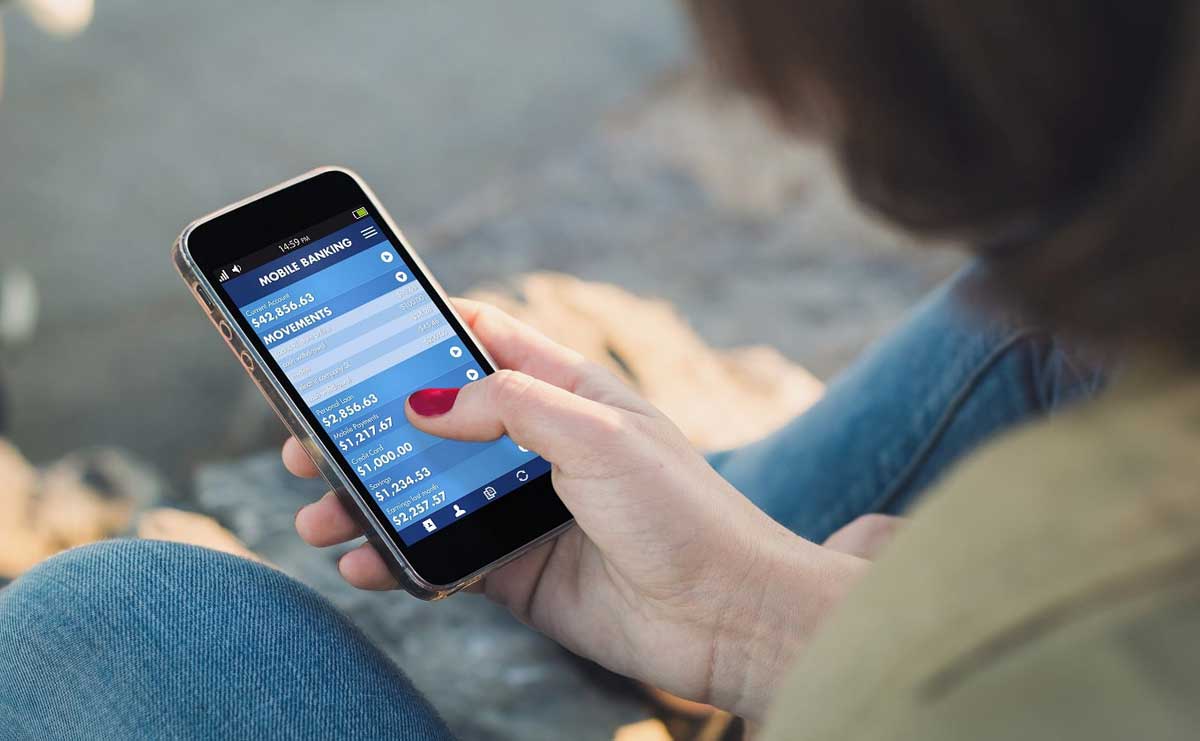Credit Card Fraud Prevention: Types Of Fraud, Reporting, Recovering, And More
When you purchase through links on our site, we may earn a commission. Here’s how it works.
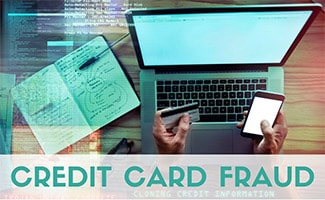 Credit card fraud is the most common form of identity theft, and the incidences of this type of fraud have been steadily increasing. Anyone who has a credit card should be aware of the fraud that can occur and how to handle it when it happens.
Credit card fraud is the most common form of identity theft, and the incidences of this type of fraud have been steadily increasing. Anyone who has a credit card should be aware of the fraud that can occur and how to handle it when it happens.
What Is Credit Card Fraud?
Credit card fraud is the unauthorized use of a credit card to obtain goods, services, or money fraudulently. This type of fraud occurs when someone takes credit card information by either getting the actual card or the card information and uses it unlawfully.
Credit card fraud increased by 45% from 2020 to 2021. And in 2020 there were 323,920 reports of COVID-19 fraud.
Types Of Credit Card Fraud
There are lots of different types of credit card fraud. Here are some examples of the most common ways criminals can get your credit card and use it for fraudulent activity.
Stolen Credit Card
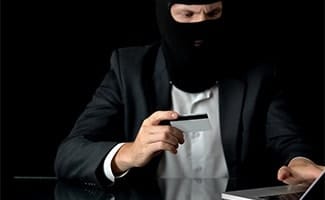 A good criminal can steal your wallet without you even noticing. If you aren’t keeping a close watch on your purse or wallet, it can be easy access for someone trying to steal your credit card. Once they have your card, it can be easy to use it to rack up charges until you notice and report the activity.
A good criminal can steal your wallet without you even noticing. If you aren’t keeping a close watch on your purse or wallet, it can be easy access for someone trying to steal your credit card. Once they have your card, it can be easy to use it to rack up charges until you notice and report the activity.
Account Takeover
If someone gets access to your personal information, like your address, phone number, or mother’s maiden name, they can use it to gain access to your accounts. Once they get in, a fraudster may call your credit card company pretending to be you. They can cancel your existing cards and have them issue new cards that’ll be sent to them directly, change your passwords, change your address, and make it difficult for you to get into your account.
Credit Card Scams
The most common credit card scams involve someone reaching out to you pretending to be a reputable company or organization. They may ask for a donation, to improve your current card’s interest rate, or to tell you about an overage charge on a recent purchase. They’ll ask you for personal identifying information and then use that to defraud you.
Credit Card Skimmers
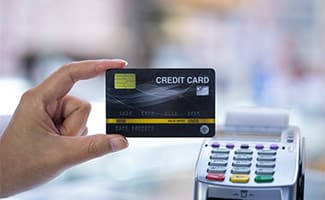 A skimmer is a small device that reads your card’s magnetic strip. Thieves put skimmers into card readers at gas pumps, ATMs, and payment machines. These skimmers record the full name, card number, and expiration date. Some criminals even place a small camera nearby to record you entering your pin. Once they get your card information, they may sell it to another criminal or use it themselves to make fraudulent purchases or a duplicate card.
A skimmer is a small device that reads your card’s magnetic strip. Thieves put skimmers into card readers at gas pumps, ATMs, and payment machines. These skimmers record the full name, card number, and expiration date. Some criminals even place a small camera nearby to record you entering your pin. Once they get your card information, they may sell it to another criminal or use it themselves to make fraudulent purchases or a duplicate card.
Can RFID (Radio Frequency Identification) Technology Thwart This Type Of Attack?
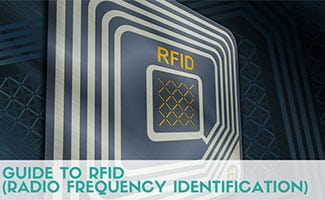 There’s been a lot of buzz over the last several years about a way thieves can potentially steal your credit or debit card information out of thin air when they’re in your vicinity, essentially electronically pickpocketing you without you ever knowing.
There’s been a lot of buzz over the last several years about a way thieves can potentially steal your credit or debit card information out of thin air when they’re in your vicinity, essentially electronically pickpocketing you without you ever knowing.
What makes this possible is RFID (radio frequency identification) technology that’s embedded in some credit, debit, and other ID cards. The fear is that thieves can use what’s called an RFID reader or skimmer to steal your information from your card.
But just how real is the threat? And if you’re worried, can use an RFID wallet offer you protection? Our experts highlight all the information you need to know so you can make the best decision for your security in our guide to RFID.
Skimmers won’t work with an EMV (Europay, Mastercard, Visa) chip card. EMV cards have a microprocessing chip that uses technology to authenticate each transaction by generating a one time code. However, if you use the magnetic strip the skimmer can read the information. The safest way to use an EMV chip card is to insert the chip to read and not swipe the magnetic strip.
New Account Fraud
If someone has your personal information, they can use it to open new accounts without your permission. They can set up the accounts and have cards and information sent directly to them. If you aren’t keeping an eye on your credit, you may not even notice.
Card-Not-Present Fraud
Card-not-present means what it says. The fraudster uses the card information for mail order and online purchases without the card being present.
Can I Detect Credit Card Fraud Before It Happens?
 Here are a few ways to check your accounts for signs of credit card fraud:
Here are a few ways to check your accounts for signs of credit card fraud:
- Check your billing statement each month for charges you didn’t authorize
- Keep an eye out for unfamiliar bills or communication from collection agencies for accounts you didn’t open
- Get in the habit of checking your credit report regularly (and don’t miss our experts’ ultimate guide to your credit: from monitoring to repair)
- Monitor your personal information with an identity theft protection service
- Enroll in a credit monitoring service that will notify you of changes to your credit report and score
What Can I Do To Stop It?
Stopping unauthorized charges is as simple as reporting them. Thanks to the Fair Credit Billing Act, you won’t be held responsible for any unauthorized transactions on your credit card as long as you report your card lost or stolen before any charges appear. And, if you report it after charges appear, your credit card company can’t ask you to pay for more than $50 of the charges.
How Do I Report Credit Card Fraud?
If you’ve been a victim of credit card fraud, you should report it to the following entities.
1. Call Your Card Issuer Immediately: Be sure to report instances of fraud immediately to stop unauthorized charges. It’s also important to report your card lost or stolen before charges start to appear.
2. File A Police Report: When you report credit card fraud to the police, they may be able to track fraudulent purchases that could lead to finding the criminal. Sometimes, the credit card company will work with the police to provide information that could lead them to the criminal.
3. Contact The Federal Trade Commission (FTC): The FTC independently tracks identity theft and will need to be notified since credit card fraud is a form of identity theft.
What Can I Do To Prevent It?
There are lots of ways to prevent becoming a victim of credit card fraud. Here are a few things to consider to keep your card information safe.
 Keep your wallet safe and secure
Keep your wallet safe and secure- Consider an RFID wallet
- Only carry the cards you need
- Use a credit card with an EMV chip
- Destroy old credit cards
- Only make online purchases from reputable companies
- Don’t shop online using public WiFi (learn how to secure your WiFi)
- Protect yourself from cybercrime
- Make sure it’s a trusted source before giving card information over the phone
- Guard your personal information
- Add a verbal password to your accounts and consider a password manager
- Add multi-factor authentication (MFA or 2FA) to your accounts
What Is The Punishment For Credit Card Fraud?
Each state has different laws regarding credit card fraud, but federal law can also come into play when devices that facilitate fraud, like skimmers, are a part of the crime. Offenses can range from minor to felony charges, just like punishment can range from fines to jail time.
The punishment depends on the type of fraud, how much money is involved, if the victim is elderly, and the fraudster’s criminal history. Every case is different, so for more specific information, you’ll need to reach out to your local law enforcement agency.
How Often Do Credit Card Frauds Get Caught?
It’s possible to catch a fraud when you’ve been a victim. However, the credit card frauds caught most often are the ones you know. When you or the credit card company can determine who’s using your card, the chances are much higher that they’ll be held accountable.
Protect Your Credit Card At The Gas Pump
This one-minute video from ABC 7 Chicago shows you how to spot a credit card skimmer at the gas pump and how to protect your pin.
Protect Your Identity
Credit card fraud is only one way criminals can steal from you. Identity theft can be even more damaging. Our experts compiled a comprehensive guide to protecting your identity. This guide has a lot of information to help you understand how to protect your identity and why you should make it a priority.



